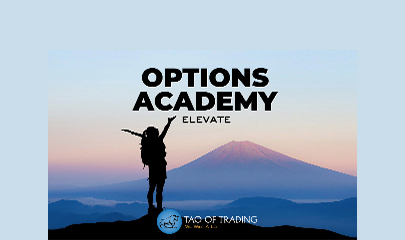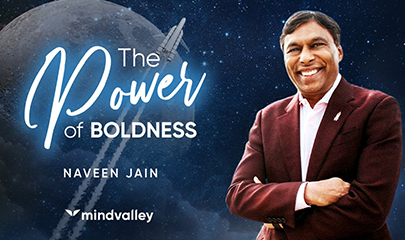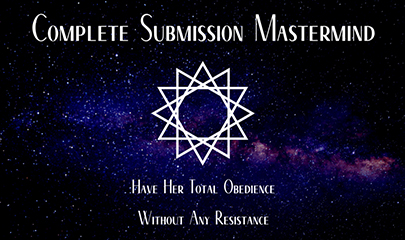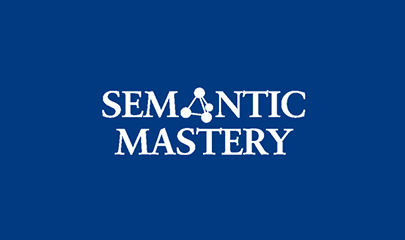-
×
 Options Academy Elevate By Simon Ree - Tao of Trading
1 × $109,00
Options Academy Elevate By Simon Ree - Tao of Trading
1 × $109,00 -
×
 The Midyear Money Upgrade by Victoria Washington
1 × $22,00
The Midyear Money Upgrade by Victoria Washington
1 × $22,00 -
×
 Write Like Anyone By Justin Blackman
1 × $15,00
Write Like Anyone By Justin Blackman
1 × $15,00 -
×
 The History of Christianity: From the Disciples to the Dawn of the Reformation By Luke Timothy Johnson
1 × $5,00
The History of Christianity: From the Disciples to the Dawn of the Reformation By Luke Timothy Johnson
1 × $5,00 -
×
 Bank and Financial Institution Modeling Course (Bank – FIG Modeling) By Matan Feldman - Wall Street Prep
1 × $69,00
Bank and Financial Institution Modeling Course (Bank – FIG Modeling) By Matan Feldman - Wall Street Prep
1 × $69,00 -
×
 Learn Yoga Arm Balance And Inversions By Yogi Flight School
1 × $54,00
Learn Yoga Arm Balance And Inversions By Yogi Flight School
1 × $54,00 -
×
 MILLION DOLLAR DIVA By Ingrid Arna
1 × $124,00
MILLION DOLLAR DIVA By Ingrid Arna
1 × $124,00 -
×
 Giving Yourself Permission to be Extraordinary By John Demartini
1 × $15,00
Giving Yourself Permission to be Extraordinary By John Demartini
1 × $15,00 -
×
 The 3rd volume of the hugely successful 2GTS Program! - Sexual Mastery Club by 2 Girls Teach Sex
1 × $5,00
The 3rd volume of the hugely successful 2GTS Program! - Sexual Mastery Club by 2 Girls Teach Sex
1 × $5,00 -
×
 The History and Achievements of the Islamic Golden Age By Eamonn Gearon
1 × $5,00
The History and Achievements of the Islamic Golden Age By Eamonn Gearon
1 × $5,00 -
×
 The Power of Boldness 2023 By Naveen Jain - MindValley
1 × $6,00
The Power of Boldness 2023 By Naveen Jain - MindValley
1 × $6,00 -
×
 Getting Started with Illustrator CC By Stone River eLearning
1 × $6,00
Getting Started with Illustrator CC By Stone River eLearning
1 × $6,00 -
×
 Human Design Business Kickstart Bundle 2024 By Becca Francis
1 × $78,00
Human Design Business Kickstart Bundle 2024 By Becca Francis
1 × $78,00 -
×
 CFI Self-Study (All Courses) By CFI Education
1 × $124,00
CFI Self-Study (All Courses) By CFI Education
1 × $124,00 -
×
 Complete Submission Mastermind By Veronika
1 × $194,00
Complete Submission Mastermind By Veronika
1 × $194,00 -
×
 Minerals And Crystals for Times of Stress
1 × $93,00
Minerals And Crystals for Times of Stress
1 × $93,00 -
×
 A History of Eastern Europe By Vejas Gabriel Liulevicius
1 × $5,00
A History of Eastern Europe By Vejas Gabriel Liulevicius
1 × $5,00 -
×
 School of Cinematic Motion Design - Mastery by Motion Science
1 × $39,00
School of Cinematic Motion Design - Mastery by Motion Science
1 × $39,00 -
×
 Adobe Photoshop CC Bootcamp By Blake Rudis
1 × $5,00
Adobe Photoshop CC Bootcamp By Blake Rudis
1 × $5,00 -
×
 The Cash Flow Masterclass By Oana Labes
1 × $62,00
The Cash Flow Masterclass By Oana Labes
1 × $62,00 -
×
 UNLIMITED WEALTH - The Psychology Of Wealth Accumulation - Neil McCoy Ward
1 × $23,00
UNLIMITED WEALTH - The Psychology Of Wealth Accumulation - Neil McCoy Ward
1 × $23,00 -
×
 PUA Cribs: Project Bel-Air by Johnny Wolf
1 × $5,00
PUA Cribs: Project Bel-Air by Johnny Wolf
1 × $5,00 -
×
 Tarot with Pendulums By Pendulum Alchemy
1 × $31,00
Tarot with Pendulums By Pendulum Alchemy
1 × $31,00 -
×
 Integrating Attachment Science with Today's Most Popular Approaches in Psychotherapy By Pesi
1 × $85,00
Integrating Attachment Science with Today's Most Popular Approaches in Psychotherapy By Pesi
1 × $85,00 -
×
 Resonance Rituals 2023 By Cat Howell
1 × $39,00
Resonance Rituals 2023 By Cat Howell
1 × $39,00 -
×
 The Secrets to Financial Mastery By John Demartini
1 × $209,00
The Secrets to Financial Mastery By John Demartini
1 × $209,00 -
×
 Getting Started With InDesign CC By Stone River eLearning
1 × $6,00
Getting Started With InDesign CC By Stone River eLearning
1 × $6,00 -
×
 Brand Authority Profits By Dan Henry
1 × $39,00
Brand Authority Profits By Dan Henry
1 × $39,00 -
×
 Capital On Demand Masterclass By Attorney - Nate Dodson
1 × $311,00
Capital On Demand Masterclass By Attorney - Nate Dodson
1 × $311,00 -
×
 Pleasure Principles By Nadine Lee
1 × $69,00
Pleasure Principles By Nadine Lee
1 × $69,00 -
×
 The Shaft Method Course For Men By Shaft Uddin
1 × $132,00
The Shaft Method Course For Men By Shaft Uddin
1 × $132,00 -
×
 Master The Bedroom Program By Apollonia Ponti
1 × $31,00
Master The Bedroom Program By Apollonia Ponti
1 × $31,00 -
×
 Alcohol Ink on Canvas Course By Jenna Webbart
1 × $46,00
Alcohol Ink on Canvas Course By Jenna Webbart
1 × $46,00 -
×
 The Performance Stretch System Level 1 By The Stretch Therapists
1 × $139,00
The Performance Stretch System Level 1 By The Stretch Therapists
1 × $139,00 -
×
 Orgasmic, Tantric And Erotic Hypnosis By David Mears
1 × $163,00
Orgasmic, Tantric And Erotic Hypnosis By David Mears
1 × $163,00 -
×
 7 Figure Sales Training and Script Bundle By Eric Cline
1 × $319,00
7 Figure Sales Training and Script Bundle By Eric Cline
1 × $319,00 -
×
 POFU Live 2021 (4th Edition) By Semantic Mastery Crew
1 × $39,00
POFU Live 2021 (4th Edition) By Semantic Mastery Crew
1 × $39,00 -
×
 Create a Knockout Graphic Design Portfolio By Ram Castillo
1 × $5,00
Create a Knockout Graphic Design Portfolio By Ram Castillo
1 × $5,00
Buddhism By Malcolm David Eckel
$239,00 $5,00
Review of “Buddhism” by Malcolm David Eckel – Instant Download!
Let’s embark on a captivating adventure to uncover remarkable insights that spark your curiosity and elevate your understanding

Buddhism By Malcolm David Eckel
Overview

Review of “Buddhism” by Malcolm David Eckel
In the realm of spiritual literature, few texts manage to bridge the gap between scholarly rigour and accessibility quite like Malcolm David Eckel’s Buddhism. This vibrant introduction invites readers into the nuanced world of Buddhist philosophy, catering to both curious newcomers and those looking for a deeper understanding of this ancient tradition. With a narrative that gracefully unfolds the life of Siddhartha Gautama, the Buddha, Eckel’s work delves into the foundational elements that have shaped Buddhist thought across centuries and continents. Using a blend of engaging prose, academic insights, and stunning visual aids, Eckel crafts a compelling portrait of Buddhism that resonates with both the intellect and the spirit.
The Life of Siddhartha Gautama
A Journey of Transformation
At the heart of Eckel’s exploration is the biography of Siddhartha Gautama, the man who would become the Buddha. Born into royalty, Siddhartha lived a life sheltered from the harsh realities of existence. It is through a series of profound encounters witnessing old age, sickness, and death that he begins to question the meaning of life. This transformative journey from comfort to enlightenment mirrors the journey many readers might find themselves on as they seek answers to their own existential questions. Eckel illustrates this pivotal change with remarkable clarity, encouraging readers to reflect on their pathways in life.
Core Principles: Four Noble Truths and the Eightfold Path
Eckel methodically unfolds the core principles of Buddhism, namely the Four Noble Truths and the Eightfold Path. These teachings serve as the ethical and philosophical foundation for Buddhist practice. The Four Noble Truths outline the reality of suffering (dukkha) and provide a roadmap for overcoming it through understanding, intention, and action.
Key Concepts:
- The Four Noble Truths:
- Dukkha: The acknowledgment of suffering in life.
- Samudaya: The origin of suffering stems from attachment and desire.
- Nirodha: The cessation of suffering is attainable.
- Magga: The path to the cessation of suffering is the Eightfold Path.
- The Eightfold Path:
- Right Understanding
- Right Intent
- Right Speech
- Right Action
- Right Livelihood
- Right Effort
- Right Mindfulness
- Right Concentration
In guiding the reader through these precepts, Eckel not only elucidates their significance but also illustrates how they apply to modern life. His approach fosters a connection between ancient wisdom and contemporary existence, encouraging readers to engage with these teachings on a personal level.
Buddhism’s Global Impact and Adaptability
A Journey Across Cultures
Buddhism is not a monolithic tradition; it has evolved significantly as it spread across various cultures. Eckel highlights this diversity, pointing to how Buddhism has adapted itself to fit within the cultural contexts of India, Southeast Asia, Tibet, China, Korea, and Japan. Each region has its own interpretations and practices, which enrich the tradition as a whole. For instance, Zen Buddhism in Japan emphasizes meditation and direct experience, while Tibetan Buddhism incorporates ritual and a rich visual aesthetic.
Comparative Elements:
- India: The birthplace of Buddhism, rooted in early teachings and monastic life.
- Southeast Asia: Theravada Buddhism flourished, focusing on individual enlightenment.
- Tibet: The integration of tantric practices and the concept of the bodhisattva.
- China: Chan Buddhism (the precursor to Zen) centered around direct experience and enlightenment.
- Japan: The adaptation of Zen and Pure Land schools focused on meditation and faith.
Eckel effectively conveys the notion that while Buddhism retains its core teachings, its flexibility allows it to resonate with diverse populations. This adaptability has played a crucial role in making Buddhism one of the world’s major religious traditions.
Contemporary Relevance
The author examines the role of modern Buddhist figures in influencing contemporary society. Figures such as the Dalai Lama and Aung San Suu Kyi serve as examples of how Buddhist teachings can translate into social and political action. Their ability to apply the fundamental principles of Buddhism to societal issues demonstrates its relevance beyond the realm of spirituality.
- Dalai Lama: A symbol of compassion and non-violence, advocating for peace and understanding.
- Aung San Suu Kyi: Her leadership reflects the complexities of applying Buddhist principles in politics, sparking both admiration and criticism.
Eckel emphasizes that Buddhism is not just a personal practice but can also be a lens through which to understand and navigate societal challenges.
Structure and Presentation of the Book
Thoughtful Organization
The organizational structure of Eckel’s Buddhism is commendable, ensuring that readers can easily navigate through essential topics. Each chapter builds on the previous one, guiding the reader through the intricacies of Buddhist thought while maintaining an overarching narrative coherence. This is crucial for those who might initially feel overwhelmed by the depth of Buddhist philosophy. Through clear subheadings and logical progression, Eckel creates a roadmap for discovery.
Visual Engagement
Moreover, the inclusion of lavish photography and illustrative features enhances the reading experience. Visual elements serve not only as a backdrop to the text but also as a means to contextualize complex concepts and cultural practices within Buddhism. These artistic portrayals invite the reader to visualize the rich tapestry of Buddhist traditions and encourage a deeper emotional engagement with the material.
Visual Features:
- Photographs of significant Buddhist sites and rituals.
- Illustrations of key symbols, such as the lotus and the wheel of Dharma.
- Infographics that break down complex teachings into digestible formats.
Conclusion
Malcolm David Eckel’s Buddhism is a remarkable introduction to one of the world’s great religious traditions. It successfully balances scholarly analysis with engaging narratives, making it a valuable resource for anyone interested in exploring Buddhism. Through its comprehensive structure, rich visual presentation, and insightful discussions, Eckel’s work transcends mere academic instruction, inviting readers into a reflective journey of personal and collective spirituality. Whether you are a novice seeking to understand the basics or a more seasoned practitioner looking for deeper insights, this book provides the tools to navigate the profound landscapes of Buddhist thought and practice. In our fast-paced world, where questions of meaning and purpose abound, Buddhism stands out as a guide that urges us to pause, reflect, and connect with the timeless wisdom of the Buddha.
Frequently Asked Questions:
Innovation in Business Models: We use a group purchase approach that enables users to split expenses and get discounted access to well-liked courses. Despite worries regarding distribution strategies from content creators, this strategy helps people with low incomes.
Legal Aspects to Take into Account: Our operations’ legality entails several intricate considerations. There are no explicit resale restrictions mentioned at the time of purchase, even though we do not have the course developers’ express consent to redistribute their content. This uncertainty gives us the chance to offer reasonably priced instructional materials.
Quality Control: We make certain that every course resource we buy is the exact same as what the authors themselves provide. It’s crucial to realize, nevertheless, that we are not authorized suppliers. Therefore, the following are not included in our offerings: – Live coaching sessions or calls with the course author.
– Entry to groups or portals that are only available to authors.
– Participation in closed forums.
– Straightforward email assistance from the writer or their group.
Our goal is to lower the barrier to education by providing these courses on our own, without the official channels’ premium services. We value your comprehension of our distinct methodology.
Be the first to review “Buddhism By Malcolm David Eckel” Cancel reply
You must be logged in to post a review.



















Reviews
There are no reviews yet.